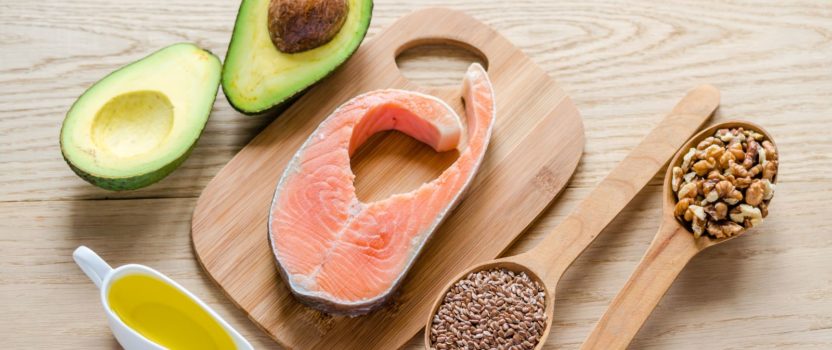10 Ways To Balance Your Hormones – Naturally!
It’s easy to overlook the role hormones play in our health and wellbeing. Yet hormonal imbalances affect millions of people worldwide – manifesting as diabetes, thyroid disorders, menstrual irregularities, infertility, low testosterone and estrogen dominance. Sometimes medications are necessary, but there is plenty we can do with diet and lifestyle:
- Eat healthy fats: Your body needs fat to create hormones, including saturated fat and cholesterol. They are the fundamental building blocks for hormone production and help reduce inflammation, boost your metabolism and promote weight loss. Good sources are: coconut oil, avocados, nuts, seeds and oily fish.
- Supplement with Adaptogens. These plant compounds promote hormone balance, improve immune function and protect the body from the negative effects of excess stress. My favourites are maca powder (easy to add to a smoothie) and rhodiola (great support for the adrenals).
- Balance your omegas: Most people eat too many omega 6 fatty acids and not enough omega 3s. Elevated omega 6 levels promote inflammatory conditions such acne, eczema, heart disease and cancer. Omega 3s help reduce inflammation, are vital for cell to cell communication and are vital for proper hormone health. Avoid vegetable oils high in omega 6 fats (safflower, corn, canola, soybean and peanut) and increase foods that are high in omega 3s (wild fish, flaxseed, chia seeds, walnuts and grass-fed animal products).
- Improve your gut health: Conditions such as “leaky gut” or intestinal permeability compromise your digestion and contribute to hormonal issues. Leaky gut is a condition where partially digested food particles “leak” through the intestinal wall and trigger immune reactions and inflammation that affect your entire body. Avoid foods that damage in your digestive tract including: processed foods, gluten, hydrogenated oils and added sugar. Include foods that foods that support intestinal healing like kombucha, fermented vegetables, and high-fibre foods like vegetables and sprouted seeds.
- Eliminate Toxic Products: Avoid conventional body care products that are made with potentially-harmful chemicals including parabens, propylene glycol and sodium lauryl sulfate. Use natural products made with ingredients like essential oils, coconut oil, shea butter and castor oil. Another wise precaution is to switch from non-stick pans to stainless steel, ceramic or cast iron.
- Exercise: Exercise in general is great for balancing hormones because it reduces inflammation, can help you maintain a healthy weight, lowers stress, helps regulate your appetite and improves sleep.
- Reduce Stress & Get More Sleep: Lack of sleep is one of the worst things for hormone imbalance because all hormones work on a schedule! Sleep helps keep stress hormones balanced, builds energy and allows the body to recover properly. Excessive stress and poor sleep are linked with decreased immunity and a higher susceptibility to anxiety, weight gain and depression. Try to get to bed by 10 pm and stick with a regular sleep-wake-cycle as much as possible.
- Watch Your Caffeine & Alcohol Intake: Moderate amounts of caffeine are okay for most, but drinking too much caffeine is almost as bad as not getting enough sleep. Caffeine, which can stay in your system for up to six hours, raises your heart rate, increases alertness, and changes the way your brain produces hormones. Caffeine has been shown to increase insulin levels, reduce insulin sensitivity, and increase cortisol levels. Ideally switch to matcha green which is much lower in caffeine. Watch your alcohol intake too, since high levels of alcohol (above about 2 drinks daily) can negatively impact liver function, which is vital for proper hormone balance.
- Take Vitamin D3: Vitamin D acts like a hormone inside the body and helps reduce inflammation. Sunshine is really the best way to optimize vitamin D levels because your bare skin makes vitamin D on its own when exposed to direct sunlight. Most people should supplement with around 2,000 IU to 5,000 IU daily of vitamin D3 if they live in dark areas, during the winter, and on days when they’re not in the sun.
- Eat phytoestrogens: Many vegetables contain plant compounds that exert a weak estrogenic effect on our cells and are useful in protecting against many kinds of estrogen-dependent cancers. Some of the highest concentrations of phytoestrogens can be found in: Soybeans and soy products, tempeh, flaxseeds, oats, barley, lentils, sesame seeds, yams, alfalfa, apples, carrots, pomegranates, wheat germ and coffee.
Following these wise rules is an effective way to help you keep your hormones in check – naturally and without side effects. Find out more ways to keep a healthy balance with your own personalized Foodwise plan!


Leave a Reply
Your email is safe with us.
You must be logged in to post a comment.